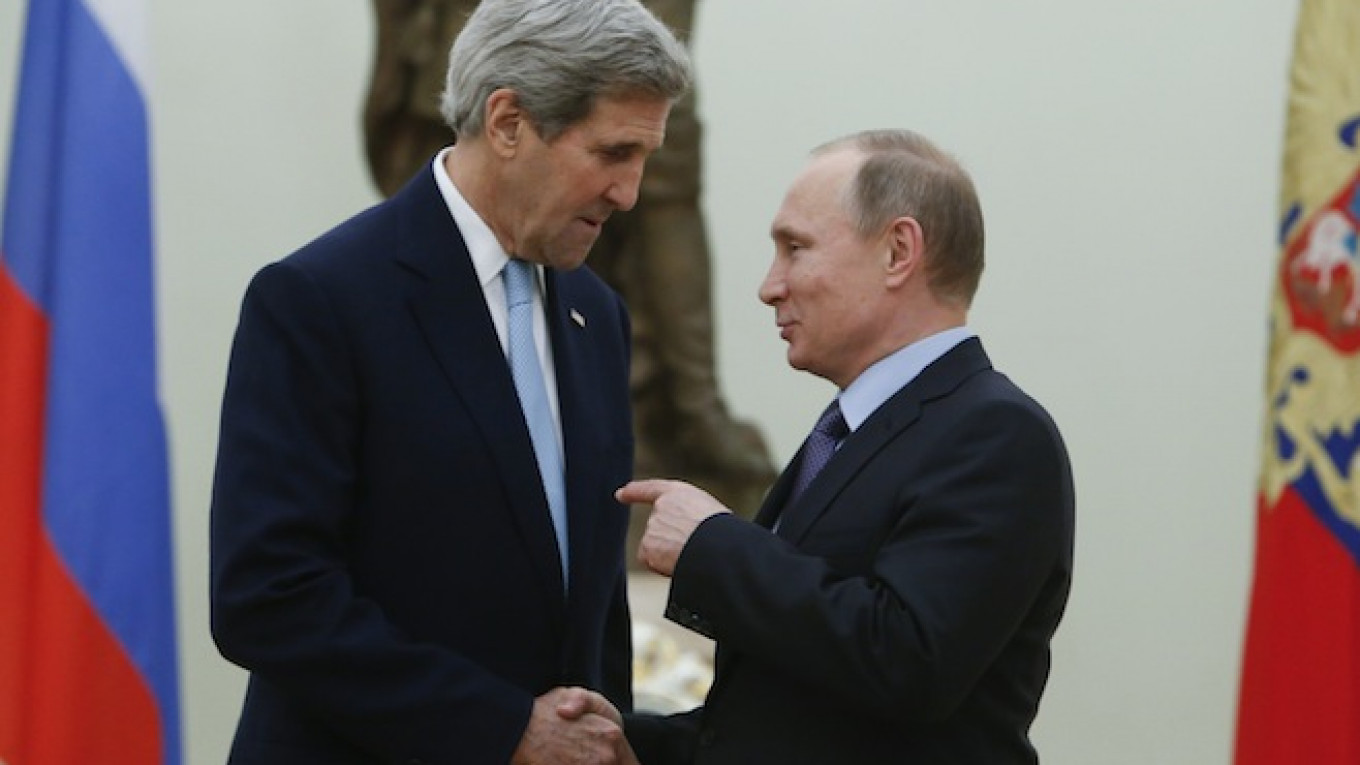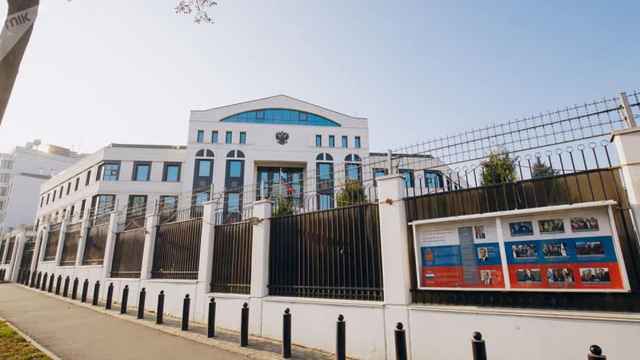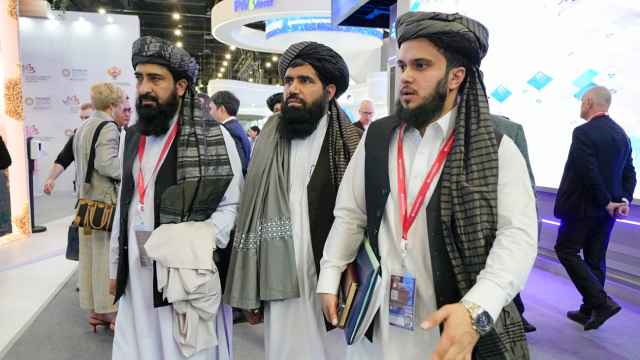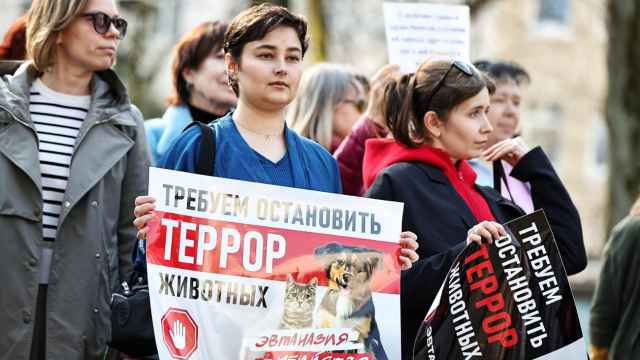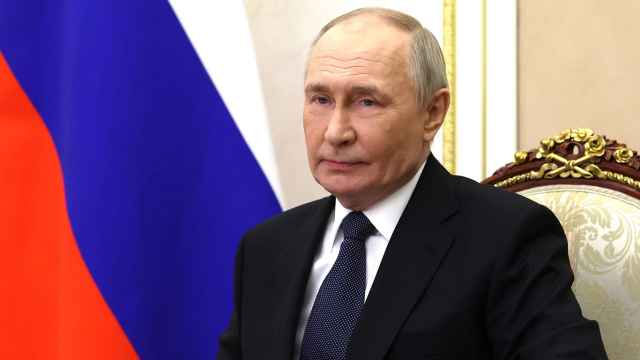Despite the fact that progress remains slow on some of the key conflicts between Russia and the U.S., including the Ukraine crisis, recent talks between Russian President Vladimir Putin and U.S. Secretary of State John Kerry demonstrated a softening of the rhetoric used by both sides.
On Russia's part, this reflects a desire to move away from confrontation and normalize relations, without changing its position on Ukraine, expert on international relations Vladimir Frolov told The Moscow Times on Friday.
The U.S. is playing along with Moscow to maintain cooperation with Russia on Syria and to persuade Moscow to force Syrian President Bashar Assad to set up a transitional government, a new constitution and new elections, according to Frolov.
The talks, that took place in Moscow on Thursday, lasted for four hours and were dedicated to a wide range of issues, including bilateral relations, the situation in Syria and Ukraine, the struggle against terrorism and conflicts in Libya and Yemen.
The talks were attended by Russian Foreign Minister Sergei Lavrov, Kremlin foreign policy adviser Yury Ushakov and U.S. Ambassador to Russia John Tefft, the Interfax news agency reported.
Kerry came to Moscow for a two-day visit on Wednesday. The negotiations with Putin started with an exchange of jokes.
Putin suggested that the briefcase Kerry was carrying contained money for bargaining on key issues.
In response, Kerry said: “When we have a private moment, I'll show you what's in my briefcase. And I think you’ll be surprised — pleasantly,” Kerry said, the U.S. State Department press office reported.
After these statements, the briefcase immediately attracted the attention of the public and the media. Kerry, answering a journalist's question at a press conference that followed the meeting, refused to solve the mystery of what the briefcase contained: “This is a secret between President Putin and me,” Kerry said.
Kerry's visit follows Putin's surprise withdrawal of Russian forces from Syria. Russia has been carrying out air strikes in the country since September 2015.
The aim of Russia's Syrian operation was to ensure that Russia would be involved in negotiations, Dmitry Oreshkin, an independent political analyst, told The Moscow Times.
Both sides have stressed the positive results of their cooperation in the war-torn country.
“We agreed to continue our actions in order to enhance the cease-fire, in order to stop the violations of the cease-fire,” Lavrov said.
According to Oreshkin, the West demonstrated a willingness to make some concessions regarding Syria. They likely abandoned the idea of the immediate resignation of Assad, he said.
But on the Ukrainian conflict, Kerry made it clear once again that sanctions on Russia will not be lifted until the Minsk agreements are fully implemented and Crimea is returned to Ukraine.
One of the questions raised by Kerry during the talks with both Lavrov and Putin was the case of Ukrainian military pilot Nadezhda Savchenko. Kerry expressed hope that the Ukrainian pilot will be released and returned to Ukraine.
Nadezhda Savchenko, accused of compliance in the murder of the two Russian journalists during the conflict in eastern Ukraine, was sentenced to 22 years in prison earlier this week. Her imprisonment and the court have been repeatedly criticized by the world leaders.
Putin “gave a sense that this [Savchenko's case] is hopefully something that at an appropriate moment we may or may not be able to deal with,” according to a transcript on the U.S. State Department website.
Despite such vague wording, some saw in this a readiness on Putin's part to discuss the case. Oreshkin expressed confidence that Putin hinted at about possible future discussion of Savchenko's case.
Savchenko's case has become known internationally and it is obvious that Russia should get rid of her, Oreshkin said.
However, Putin cannot do it now, he must wait until interest in the case subsides in Russia, he added.
Contact the author at a.bazenkova@imedia.ru
A Message from The Moscow Times:
Dear readers,
We are facing unprecedented challenges. Russia's Prosecutor General's Office has designated The Moscow Times as an "undesirable" organization, criminalizing our work and putting our staff at risk of prosecution. This follows our earlier unjust labeling as a "foreign agent."
These actions are direct attempts to silence independent journalism in Russia. The authorities claim our work "discredits the decisions of the Russian leadership." We see things differently: we strive to provide accurate, unbiased reporting on Russia.
We, the journalists of The Moscow Times, refuse to be silenced. But to continue our work, we need your help.
Your support, no matter how small, makes a world of difference. If you can, please support us monthly starting from just $2. It's quick to set up, and every contribution makes a significant impact.
By supporting The Moscow Times, you're defending open, independent journalism in the face of repression. Thank you for standing with us.
Remind me later.


